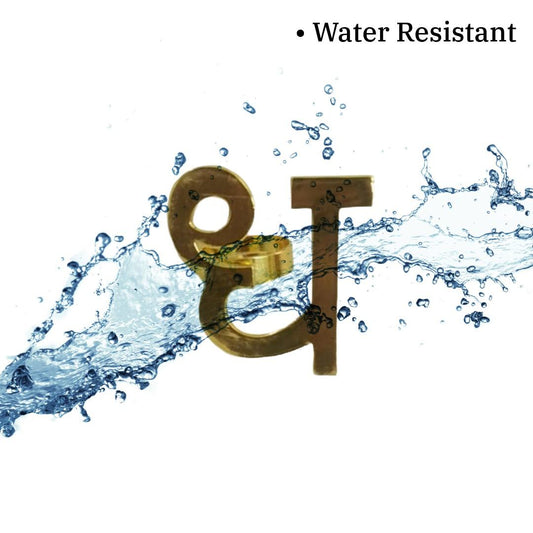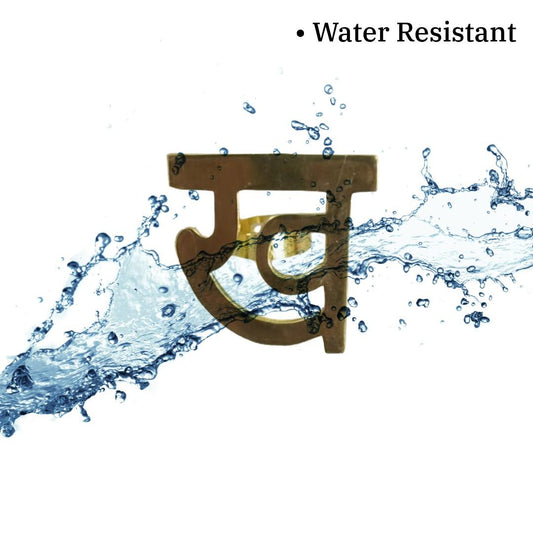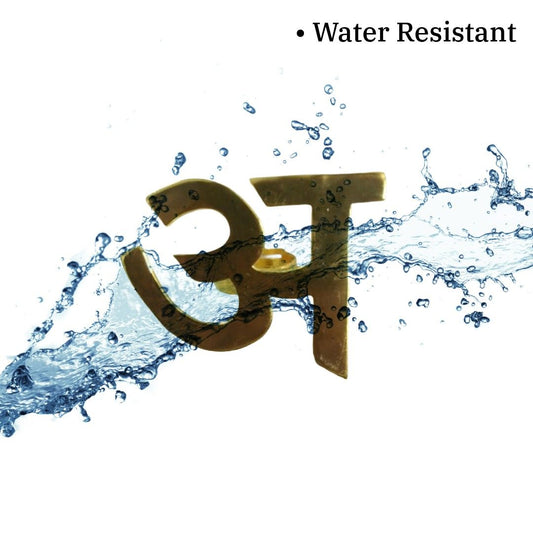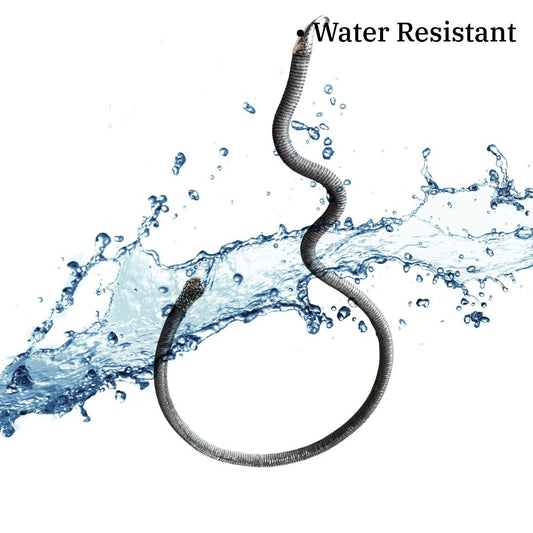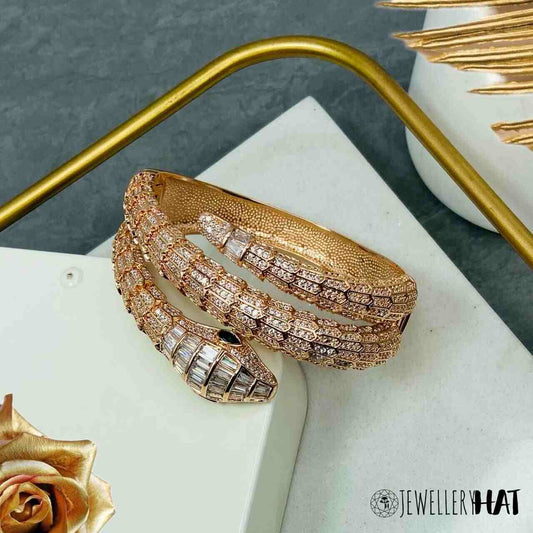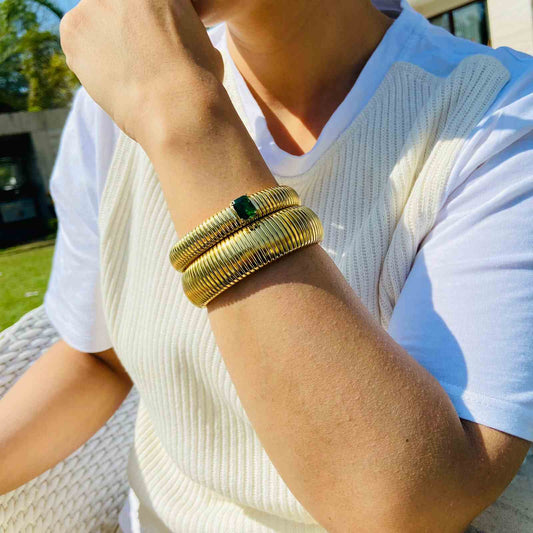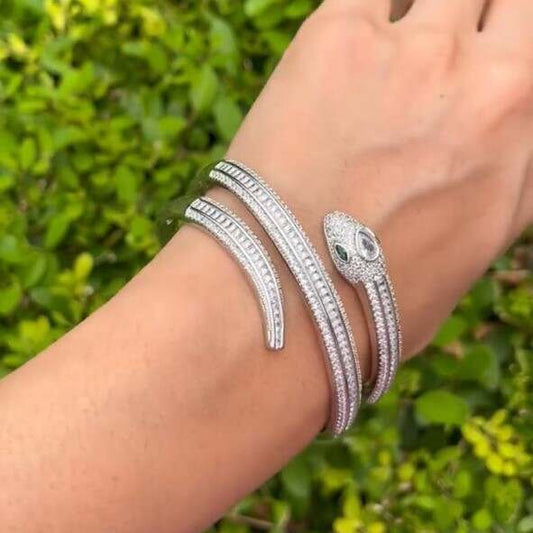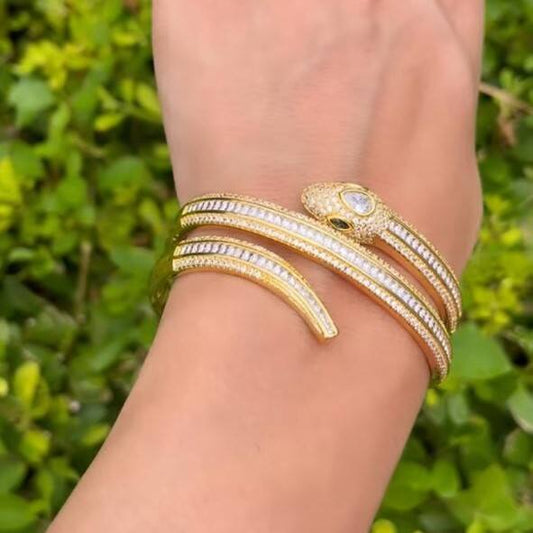When it comes to maintaining the beauty and longevity of your jewelry, one question often arises: What jewelry is safe in water? As the fastest-growing fashion jewelry brand in India, Jewelry Hat is dedicated to offering high-quality pieces that not only enhance your style but also stand the test of time. In this detailed guide, we will delve into which types of jewelry are safe to wear in water, explore the materials used in Jewelry Hat’s collection, and provide tips for keeping your jewelry in top condition.
Understanding Jewelry and Water Exposure
What jewelry is safe in water? To answer this question, it’s essential to understand how various materials interact with moisture. Jewelry made from different materials can have varying degrees of water resistance. Knowing how these materials respond to water will help you make informed decisions about which pieces to wear daily and which to avoid when exposed to moisture.
Key Factors Affecting Jewelry Water Safety
- Material Composition: Different materials offer different levels of water resistance. Jewelry made from high-quality, water-resistant materials is generally safer to wear in water.
- Design and Craftsmanship: The design and craftsmanship of jewelry can impact its water safety. Pieces with intricate designs or porous materials may be more susceptible to water damage.
- Care and Maintenance: Proper care and maintenance play a crucial role in preserving the durability and water resistance of your jewelry.
Types of Jewelry Materials and Their Water Safety
1. Stainless Steel
Stainless steel is a popular choice for fashion jewelry due to its durability and resistance to tarnishing. At Jewelry Hat, all our pieces—whether earrings, necklaces, bracelets, or rings—are crafted from high-quality stainless steel. But what jewelry is safe in water when it comes to stainless steel?
Stainless Steel and Water
Stainless steel is known for its resilience and ability to withstand occasional water exposure. It is highly resistant to rust and corrosion, making it a good option for jewelry that encounters moisture. However, while stainless steel can handle some exposure, prolonged contact with water or harsh chemicals should be avoided to maintain its appearance. So, what jewelry is safe in water? Stainless steel jewelry is generally safe for short-term water exposure, but it is best to limit its contact with water for optimal longevity.
2. Gold and Platinum
Gold and platinum are renowned for their durability and resistance to tarnishing. These metals are often used in fine jewelry and can typically tolerate brief contact with water.
Gold Jewelry
Gold jewelry, particularly pieces made from solid gold or high-karat gold, is relatively safe from water damage. Although gold itself is resistant to water, it’s wise to remove jewelry with intricate designs or gemstones before swimming or showering. What jewelry is safe in water? Solid gold jewelry is generally safe for short-term water exposure, but removing it before prolonged contact with water is recommended.
Platinum Jewelry
Platinum is highly durable and resists tarnishing, making it a good option for jewelry that might encounter occasional moisture. What jewelry is safe in water? Platinum jewelry is relatively safe for brief water exposure, but like with gold, avoiding prolonged contact with water will help preserve its beauty.
3. Silver
Silver jewelry, especially sterling silver, is more prone to tarnishing when exposed to moisture. Over time, water exposure can lead to discoloration and damage.
Sterling Silver and Water
Sterling silver, an alloy made up of 92.5% silver and 7.5% other metals (usually copper), can handle minimal water exposure but is not ideal for prolonged contact. What jewelry is safe in water? Sterling silver jewelry is best kept dry to avoid tarnishing and discoloration.
4. Gemstones and Pearls
Gemstones and pearls often have unique properties that make them more susceptible to water damage.
Gemstones
Many gemstones, such as opals, emeralds, and turquoise, are porous and can absorb moisture. This absorption can lead to discoloration and damage. What jewelry is safe in water? Gemstone jewelry is generally not safe in water due to its porous nature. It’s best to keep such pieces dry.
Pearls
Pearls are particularly sensitive to water and can absorb moisture, leading to potential discoloration and damage. What jewelry is safe in water? Pearl jewelry should be removed before swimming or showering to maintain its luster and integrity.
5. Enamel and Resin
Enamel and resin are often used in fashion jewelry for their aesthetic appeal, but they can be affected by water exposure.
Enamel Jewelry
Enamel can become damaged if exposed to water for prolonged periods. The enamel may lift or discolor over time. What jewelry is safe in water? Enamel jewelry should be kept dry to preserve its appearance.
Resin Jewelry
Resin jewelry is somewhat water-resistant but not completely waterproof. Prolonged contact with water can weaken the resin and affect its finish. What jewelry is safe in water? Resin jewelry should also be kept away from excessive moisture to ensure its longevity.
How Jewelry Hat Ensures the Longevity of Your Jewelry
As a leading fashion jewelry brand, Jewelry Hat is committed to delivering high-quality, durable jewelry. Here’s how we ensure the longevity and water resistance of our pieces:
1. High-Quality Stainless Steel
All Jewelry Hat pieces are crafted from premium stainless steel, known for its resistance to tarnishing and durability. What jewelry is safe in water? Stainless steel jewelry
from Jewelry Hat is designed to handle some moisture, though we recommend avoiding prolonged water exposure for best results.
2. Expert Craftsmanship
Our skilled artisans ensure that each piece of jewelry is meticulously crafted with attention to detail. This craftsmanship enhances the durability and water resistance of our jewelry, ensuring that it maintains its beauty over time.
3. Lifetime Replacement Warranty
Jewelry Hat offers a lifetime replacement warranty on polishing, underscoring our commitment to maintaining the quality of your jewelry. This warranty ensures that your lifetime jewelry remains in top condition, even with occasional exposure to water.
4. Care and Maintenance Guidance
We provide comprehensive care and maintenance tips to help you preserve the quality and appearance of your jewelry. Following these guidelines will help you answer the question of what jewelry is safe in water by keeping your pieces in excellent condition.
Tips for Keeping Your Jewelry Safe in Water
1. Remove Jewelry Before Water Exposure
To prevent damage, remove your jewelry before engaging in activities that involve water, such as swimming, showering, or washing dishes. This precaution helps maintain the finish and longevity of your jewelry. What jewelry is safe in water? Generally, it’s best to avoid water exposure for most types of jewelry.
2. Clean Jewelry Regularly
Regular cleaning helps keep your jewelry looking its best. Use a soft cloth to gently remove any moisture or dirt. For stainless steel jewelry, avoid using harsh chemicals and opt for a mild cleanser designed for metal. What jewelry is safe in water? While stainless steel can tolerate some moisture, regular cleaning is essential to prevent long-term damage.
3. Store Jewelry Properly
Store your jewelry in a dry, cool place to prevent moisture-related issues. Use a jewelry box or soft pouch to keep your pieces separate and protected from environmental factors. What jewelry is safe in water? Proper storage can help ensure that your jewelry remains in good condition even if it’s accidentally exposed to moisture.
4. Avoid Contact with Chemicals
Chemicals in lotions, perfumes, and cleaning products can negatively affect your jewelry. Apply these products before putting on your jewelry and avoid exposing your pieces to harsh chemicals. What jewelry is safe in water? Keeping your jewelry away from chemicals and excessive moisture will help maintain its appearance.
5. Regular Inspections
Inspect your jewelry regularly for any signs of wear or damage. If you notice any issues, such as tarnishing or loose settings, consult a professional jeweler for maintenance or repairs. What jewelry is safe in water? Regular inspections help ensure that any potential water damage is addressed promptly.
Conclusion
What jewelry is safe in water? While some materials offer better resistance to moisture than others, it’s important to take precautions to protect your jewelry from water damage. Stainless steel, gold, and platinum jewelry generally handle brief water exposure well, but it’s best to avoid prolonged contact. Sterling silver, gemstones, pearls, enamel, and resin are more susceptible to damage from moisture and should be kept dry.
Jewelry Hat’s commitment to high-quality stainless steel and expert craftsmanship ensures that our jewelry is built to last. By following the care and maintenance tips provided, you can keep your pieces looking their best and answer the question of what jewelry is safe in water with confidence.
Trust Jewelry Hat to provide you with beautiful, durable jewelry that stands the test of time. Whether you’re looking for earrings, necklaces, bracelets, or rings, our collection offers stylish options that are designed to endure. Remember, while some jewelry can handle occasional moisture, the best way to ensure its longevity is to keep it dry and well-maintained.
Contact Us :-







